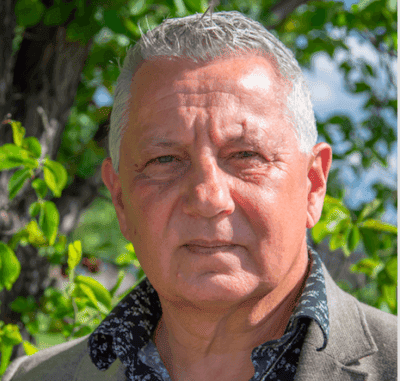More than 14,000 real estate professionals have completed mandatory training provided by the Organisme d’autoréglementation du courtage immobilier du Québec (OACIQ) on their ethical obligations regarding the overheated housing market in the province.
The regulatory body says that represents 99.2 per cent of the real estate professionals, or 14,425 licensees. All licensees had until the June 15 deadline to take the training to maintain their licence.

Caroline Champagne
Caroline Champagne, vice-president, enforcement of practices at the OACIQ, says the training provided real estate professionals with tools to deal with this exceptionally overheated period in the market and reminded them of best practices to further strengthen public protection.
“Since the beginning of the pandemic, the OACIQ has stepped up and intensified its intervention efforts to protect consumers and ensure that they are well informed and that brokers are properly trained. The vast majority of real estate transactions go off without a hitch,” says Champagne. “Through this mandatory training, the OACIQ ensures that all residential real estate brokers receive a uniform message on the important issues related to the overheated housing market and act in full compliance with the law. Ensuring smooth transactions is a shared responsibility and it is important for consumers, agency executive officers and real estate brokers to be made aware of the risks associated with a hasty transaction.”
She adds that because the market was so busy, “We wanted to further promote the compliance of the real estate transaction. This is the reason why we introduced an awareness plan, which included the mandatory training course to remind the brokers of their duties to inform, advise and verify. The second aspect of the awareness plan was mystery shoppers and finally a public awareness campaign to be sure the public understands their protections under the Real Estate Brokerage Act and also to be sure they are aware of the importance of pre-purchase inspection and legal warranty.”
Brokers had to complete the training between May 15 and June 15; otherwise their licence would be suspended. The 111 real estate brokers whose licences have been suspended will have to take the training before applying for a suspension lifting. New brokers have 30 days to take it after the issuance of their licence, says the OACIQ.
Champagne says she could not say much about the mystery shoppers because the organization wanted to keep the methods that were used a secret.
“It’s a supplementary measure to the prevention and supervision programs. We are sending mystery clients, mystery shoppers, to be sure that brokers are respecting their obligations under the law and in the case that they are not respecting the law we can take action,” she says.
The role of the OACIQ is to enforce the Real Estate Brokerage Act in Quebec and ensure the compliance of the brokers. Its mission is to protect the public.
“We have the power to inspect and investigate the brokers, to train them and to take procedures in the case of misconduct,” Champagne says.

Sacha Brosseau
Sacha Brosseau, founder and CEO of Berkshire Hathaway HomeServices Québec, says there’s really not much the regulator can do about the “overheated” housing market.
He says the training program was mainly based on pricing strategies and making sure that agents don’t lower prices in order to incite multiple offers. Many of the multiple offers would come without conditions such as inspections – clauses in normal times that offer buyers a degree of protection.
“But to be quite frank, there’s not much they can do . . . A Realtor is not going to show up and not do a comparable analysis on the market. A Realtor is not going to show up and just guess. They do their professional due diligence. But at the end of the day, just because a Realtor gives a price to a client, the client is the one who owns the property. If the client says I want to list it lower to incite new offers, well, I’m sorry, the governing body can say what they want…it’s not their house,” says Brosseau.
“And the argument to that – which I’ve done numerous times because I didn’t agree with this accusatory training that I call it – so can we go in reverse and if God forbid I list a house at $1 million and it sells for $800,000, is it my problem? No. The one thing no one has control over is the market. We base our information on previous sales and previous market trends to determine where we should be. We don’t have a crystal ball.”
Nadine Lindsay, president and CEO of the OACIQ, said the overheated housing market is the result of several factors, including low interest rates, a property inventory that is lower than demand, the exploding cost of building materials and new behaviours and needs generated by the pandemic, such as teleworking.
The OACIQ says the mandatory training reminded brokers of the duty to inform, advise and verify, and of the rules for collaboration, planning visits, handling multiple offers to purchase and advertising. The training also covered brokerage contract principles, compensation, recommended timelines, establishment of fair market value, documentation of client decisions and advice provided.

Mario Toneguzzi is a contributing writer for REM. He has more than 40 years of experience as a daily newspaper writer, columnist, and editor. He worked for 35 years at the Calgary Herald, covering sports, crime, politics, health, faith, city and breaking news, and business. He now works on his own as a freelance writer for several national publications and consultant in communications and media relations/training. Mario was named in 2021 as one of the Top 10 Business Journalists in the World by PR News – the only Canadian to make the list.















